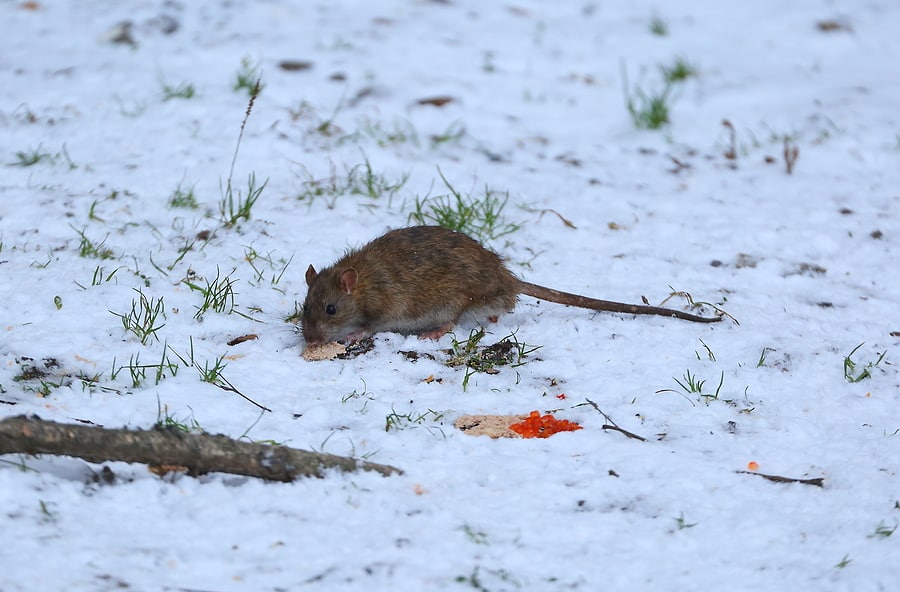READY TO GET STARTED?
REQUEST A FREE ESTIMATE
Fill out the form below or call (888) 466-7849 for a free, no-obligation estimate.

A common myth is that rodents like rats, mice, and even squirrels hibernate in the winter. Unfortunately for us, this is not true. While their activity may slow down while outside in the colder months, rodents are actually active year-round. Rodents can survive a wide range of places and climates. They are also known to carry diseases that can easily be spread to humans. Rodent-borne diseases like hantavirus and salmonella can be serious when contracted by people.
Rodents have developed several survival mechanisms to get through the winter.
In late summer and fall, rodents will start gathering as much food as possible to store in their burrows and nests for the winter. While they don’t hibernate, they will stockpile resources to help limit the number of times they have to venture out in the cold in search of food. They also have to increase the amount of food they eat to help retain their body temperature.
Rodents need a warm place to spend the winter. Like other overwintering pests, they will try and access your home to seek shelter from the cold. Rats, in particular, are capable of chewing through cinder blocks, lead, glass, aluminum, vinyl, brick, and even concrete in order to access your home. If they can’t get indoors, they are also great at digging tunnels and will burrow for shelter, usually under walls or near utility lines that come into your home.
Rodents are extremely creative when it comes to survival. They can adapt to most any situation. Our homes provide the ideal opportunity for rodents to overwinter by providing convenient cavities in walls, attics, crawlspaces, and between floors that protect them from the elements. These hiding spots are usually filled with insulation, as well, which gives them the perfect nesting material. Add in the heat we turn on in the winter and the food crumbs and other food sources we provide and they have an ideal living situation during the winter.
To keep these pests out this winter, try these rodent prevention tips:
If you have a problem with rodents, contact your local pest control company who can help identify the type of rodent you are dealing with and set you up with the appropriate rodent control program.
Prevent Bed Bugs this Holiday Season
How to Deal with a Pest Delivery at Your Business
Categories